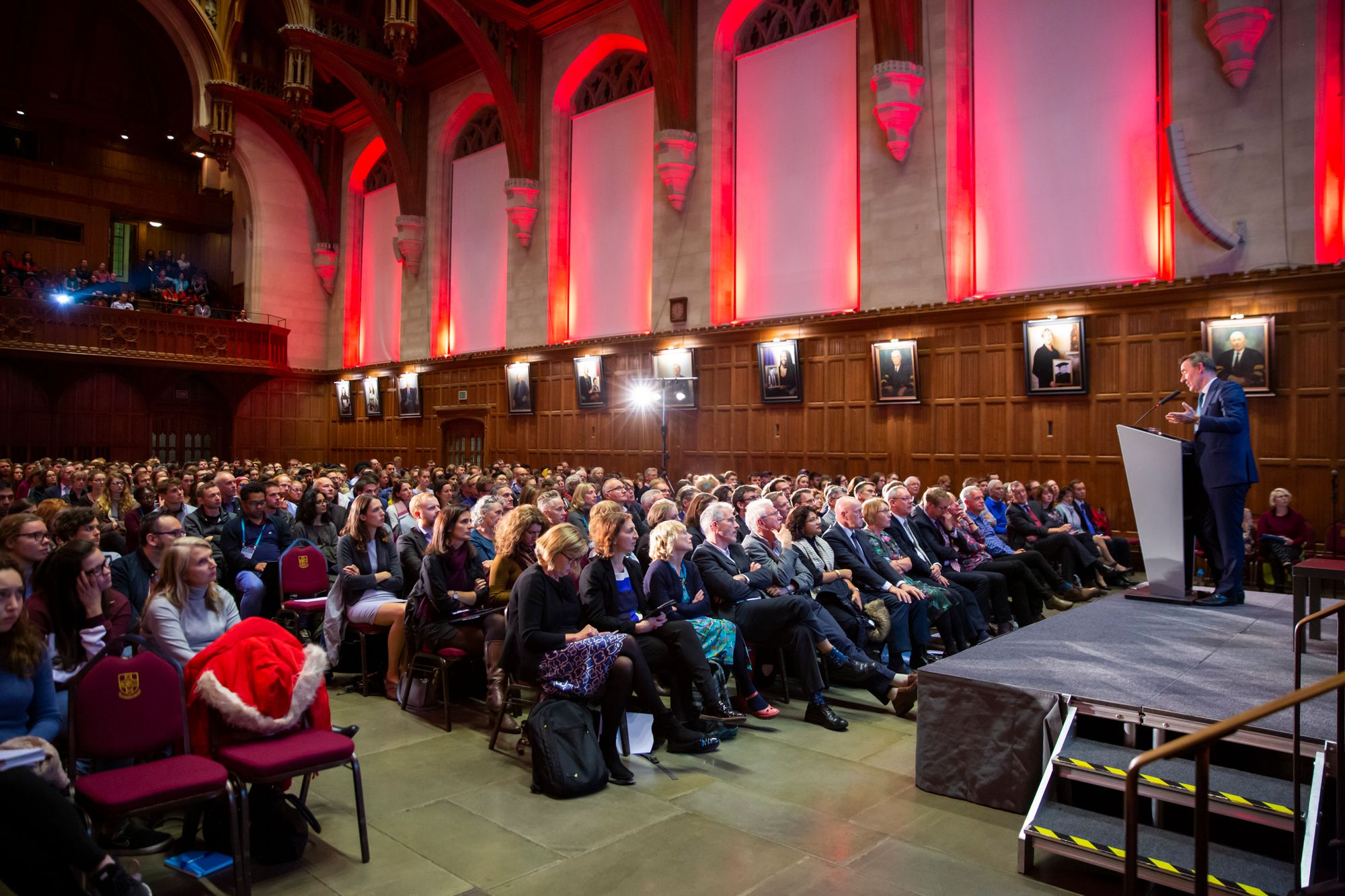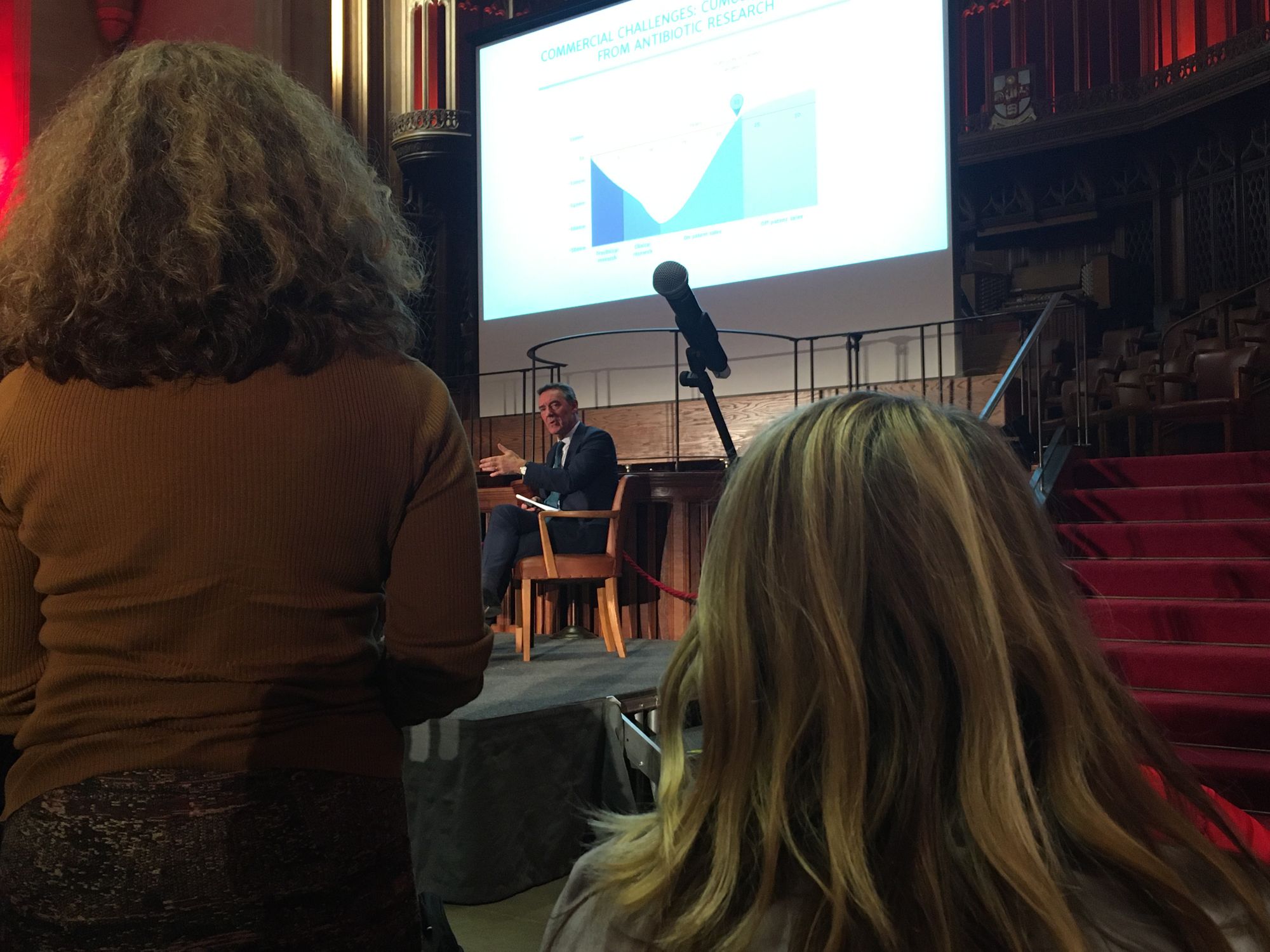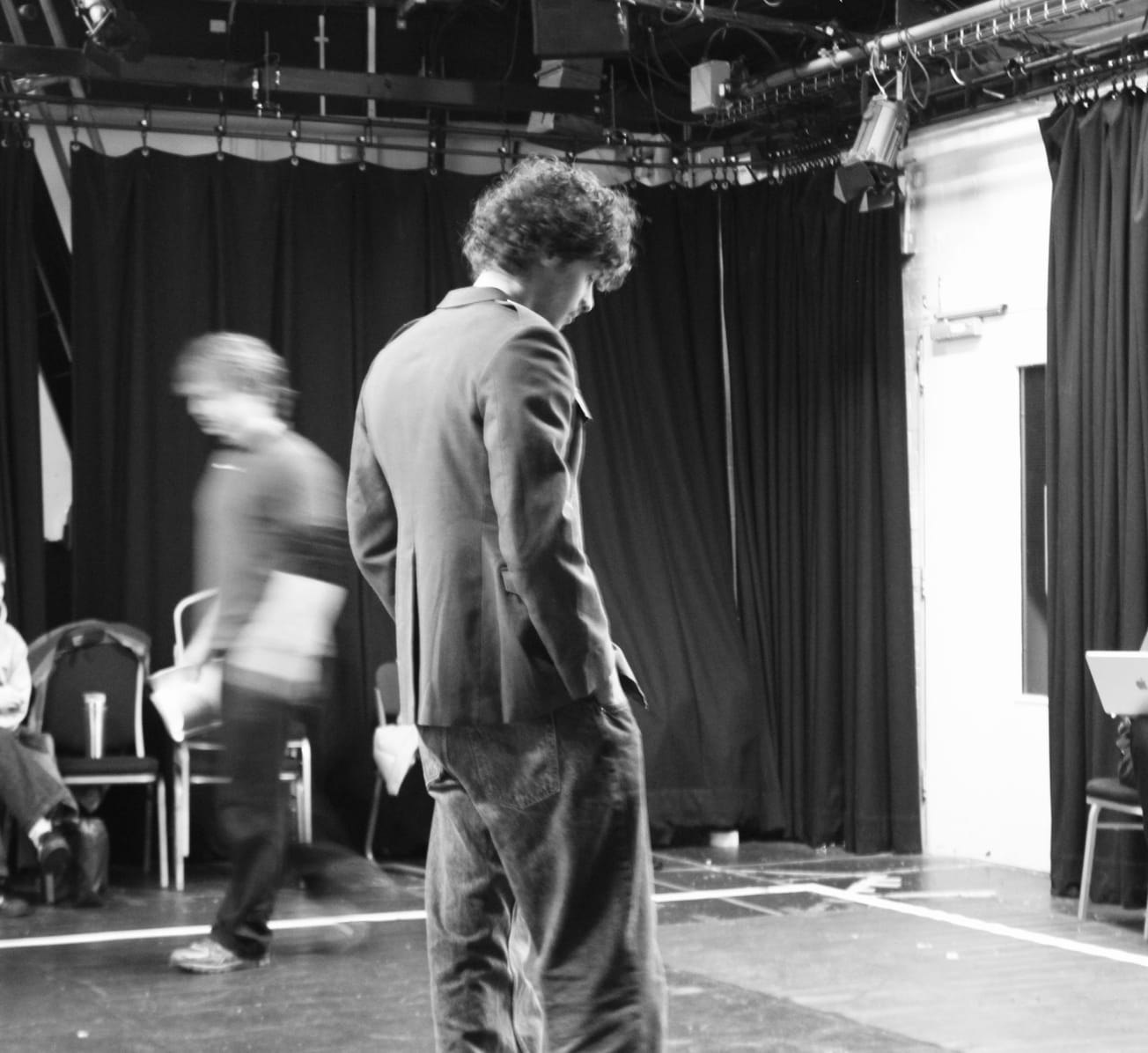By Tim Edwards, First Year, Economics
On 13 November, Lord Jim O’Neill spoke to an audience of over 800 people on the progress being made in the fight against antimicrobial resistance. Epigram had the opportunity to interview Lord O’Neill after the event.
The audience at this year's annual Colston Research Society public lecture were presented with a nightmare scenario: ‘unless we find new antibiotics and stop inappropriately using them, we are going to have a catastrophe.’ Biologists, medics and pharmacologists have researched the rise of antimicrobial resistance (AMR) for years; yet despite the dire consequences of inaction, there is little public awareness of the issue and a surprising lack of action from policymakers.
Enter Lord Jim O’Neill. Prior to leading the UK Government’s review into AMR, O’Neill had proven himself as an expert economist, earning a PhD from the University of Surrey before rising up the ranks of the investment banking world, becoming Goldman Sachs’ Chief Economist and chair of Asset Management. Commissioned by David Cameron in 2014, his AMR recommendations would become what he called his ’most important work.’

For the report, O’Neill ‘decided to stick with what he knew, realizing that his ability to ‘translate the issue into the language of finance’ would have far more sway over policymakers concerned with national budgets than any medical jargon ever would. AMR is a topic now discussed annually by the G20 and has millions in targeted funding.
Prior to leading the report, O’Neill forthrightly admitted that ‘hardly anyone knows about this challenge,”, and that he ‘certainly didn’t know anything about it [himself].’ This honesty ran throughout O’Neill’s lecture, but highlights the information failure regarding public awareness and discussion of the issue.

This month anticipated that hundreds of Bristol Students will march against climate change. How is AMR any less of a threat? According to O’Neill’s forecasts, if progress against AMR fails to improve, the global economy will contract by $100 trillion and over 10 million people are expected to die. O’Neill posited that shockingly, these predictions may well be ‘more certain’ than those of climate catastrophe.
Were all bacteria to develop AMR, antibiotics, the backbone of modern medicine, would simply stop working. Treatments previously considered trivial would become exponentially costly and life-threatening. ‘It would be an antibiotic dark age,’ O’Neill comments grimly; ‘40% of antibiotics prescribed do absolutely nothing.’ This bombshell left me shocked. Prior to his lecture I mistakenly though of antibiotics a magic bullet, able to treat any disease. This may not be the case for long.
‘‘Unless we find new antibiotics and stop inappropriately using them, we are going to have a catastrophe.”

The excess of cheap and increasingly ineffective antibiotics and the failure to develop new drugs are issues which O’Neill argues are holding progress back. ‘It is a textbook example of a capitalist market failure,’ O’Neill states. His mantra of ‘profit with purpose’ runs across all industries he has partaken in, from football to banking, yet pharmaceuticals appears to be a market that places profit over the population. Some form of government intervention, such as forcing firms to reinvest profits for AMR development may be effective, but unless people are actively asking for change, politicians may not act.
The ability for AMR to enter the societal zeitgeist appears crucial to achieving progress. There are ten times as many Google searches for climate change than AMR; this World Health Organization’s Antibiotics Awareness Week, it must become news-worthy. ‘Perhaps you could be AMR’s Greta Thunberg,’ jokes O’Neill with me when I raised this comparison. Understanding what virality means in a social context could help AMR’s image problem. Narrative Economics, a new piece of theory pioneered by Nobel Prize-winning economist Robert Shiller, comes to mind. It seeks to understand how events go viral, and could be used to examine how AMR’s reach could be broadened.
However, public consciousness on the topic is growing. O’Neill was incredibly impressed at the Bristol event turnout: ‘It was the single biggest audience I’ve ever had on AMR,’ he smiled. Additionally, Bristol is somewhat of a hub for AMR research, with the Colston Research Society organizing events such as the public lecture and most importantly, securing funding to fight AMR. If we follow Lord O’Neill’s recommendations, the future may not be a nightmarish after all.
Featured image: Flickr / Foreign and Commonwealth Office
Are we doing enough to combat AMR? Let us know!









